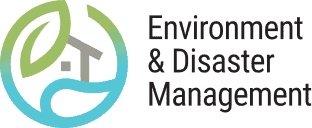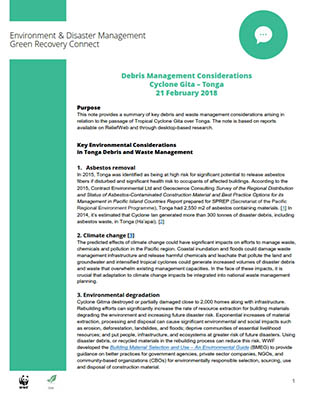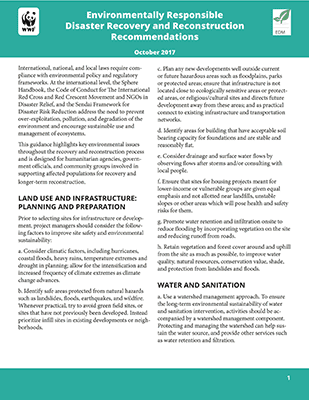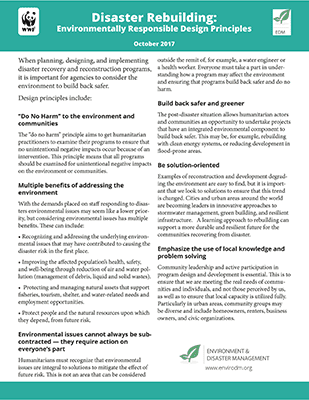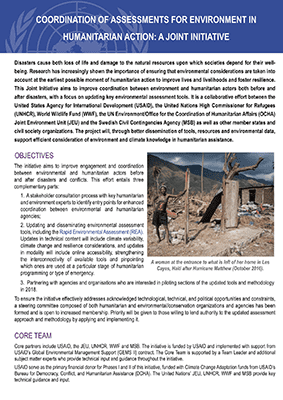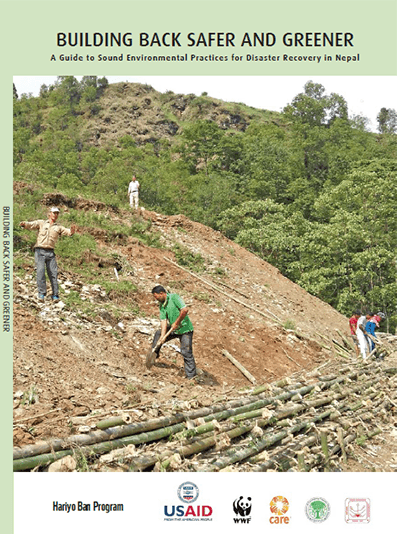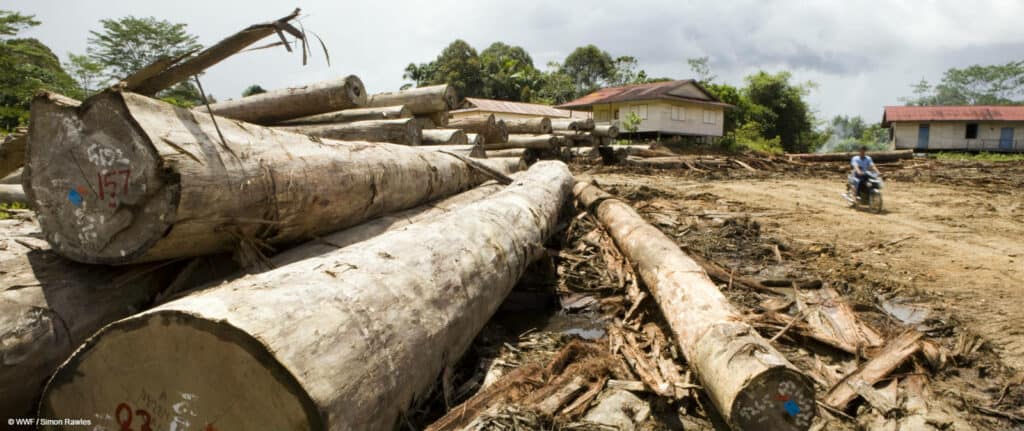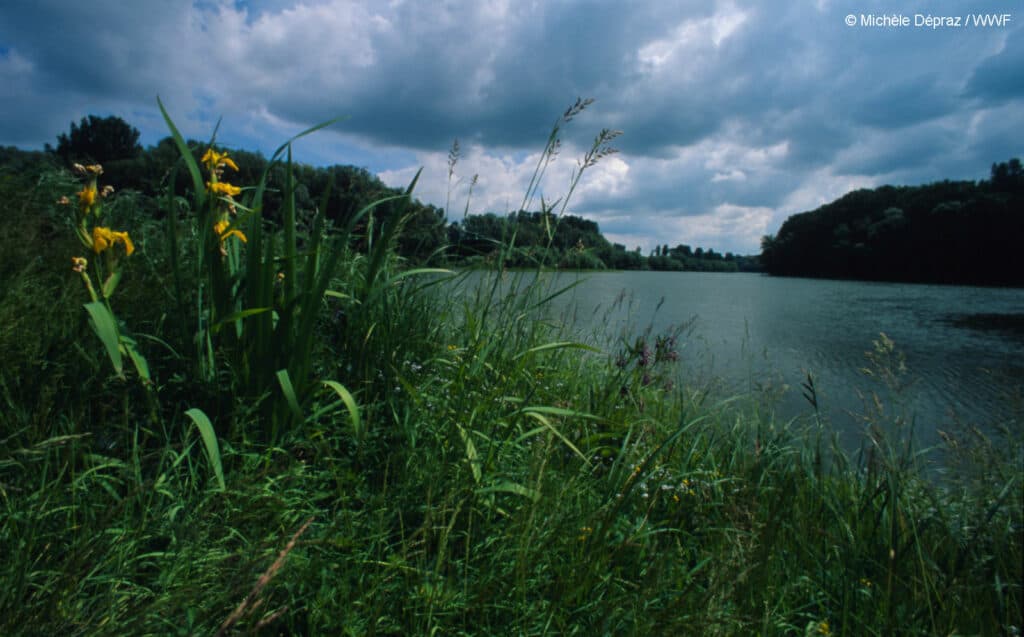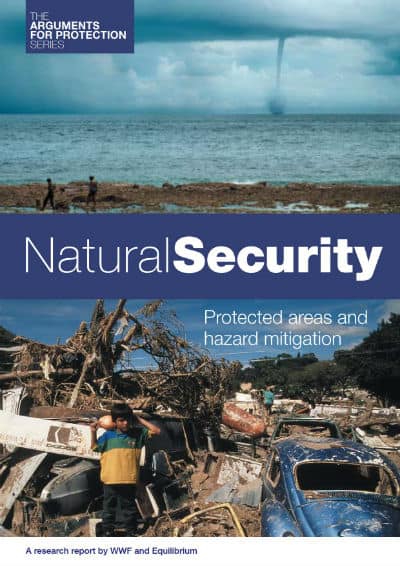Morrocco Earthquake Humanitarian Response Key Environmental Considerations Overview
This Overview provides a summary of guidance on environmental issues to be considered inassessing, planning and delivering assistance following the September 2023 earthquake inMorrocco. The Overview provides summary sector-based guidance on disaster-related environmentalissues. In line with Sphere Standards, structured rapid assessments should be used toidentify relief-related environmental issues to be included in the humanitarian responseefforts.…
Read MoreFlood Risk Management: A Strategic Approach
This book provides an overview of: the historical developments and emerging trends in flood management; the purpose and characteristics of modern flood risk management; the goals, objectives and outcomes sought; the ongoing challenges in developing and implementing flood risk management in practice together with some of the common pitfalls and misconceptions; and a summary of…
Read MoreDebris Management Considerations: Cyclone Gita – Tonga
This note provides a summary of key debris and waste management considerations arising in relation to the passage of Tropical Cyclone Gita over Tonga. The note is based on reports available on ReliefWeb and through desktop-based research.
Read MoreEnvironmentally Responsible Disaster Recovery and Reconstruction Recommendations
International, national, and local laws require compliance with environmental policy and regulatory frameworks. At the international level, the Sphere Handbook, the Code of Conduct for The International Red Cross and Red Crescent Movement and NGOs in Disaster Relief, and the Sendai Framework for Disaster Risk Reduction address the need to prevent over-exploitation, pollution, and degradation of…
Read MoreDisaster Rebuilding: Environmentally Responsible Design Principles
When planning, designing, and implementing disaster recovery and reconstruction programs, it is important for agencies to consider the environment to build back safer.
Read MoreCoordination of Assessments for Environment in Humanitarian Action: A Joint Initiative
For more information visit:http://www.eecentre.org/assessments Disasters cause both loss of life and damage to the natural resources upon which societies depend for their well-being. Research has increasingly shown the importance of ensuring that environmental considerations are taken into account at the earliest possible moment of humanitarian action to improve lives and livelihoods and foster resilience. This…
Read MoreBuilding Back Safer and Greener: A Guide to Sound Environmental Practices for Disaster Recovery in Nepal
Post-disaster recovery and reconstruction can cause many adverse environmental impacts. This guide outlines ways in which they can be avoided in Nepal, and good practices can be promoted, in order to reduce future disaster risk and ensure long-term livelihoods and well-being for local people. The guide covers settlements and land use planning; building construction; waste…
Read MoreTimber Procurement Guidance Note for Haiti
The overall impacts of the demand for timber need to be considered to ensure the recovery efforts are truly beneficial to the long term well-being of the affected communities and do not increase vulnerability of other non-affected communities. Therefore, it is imperative that organizations show due diligence in their efforts to identify legal and responsibly…
Read MoreLiving with Floods: Achieving Ecologically Sustainable Flood Management in Europe
During the last ten years or so, many European countries have repeatedly suffered tragic loss of life and massive economic damage due to catastrophic flooding. The answers to the question ‘why?’ are quite clear. The floods of recent years have become disasters because of human mismanagement of rivers, their floodplains and catchments.
Read MoreNatural Security: Protected Places and Hazard Mitigation
The Arguments for Protection project is assembling evidence on the social and economic benefits of protected areas to widen and strengthen support for park creation and management. In this volume we explore the increasing number and severity of so-called natural disasters, review how environmental degradation is contributing to this trend, look at how conservation through protection is…
Read More